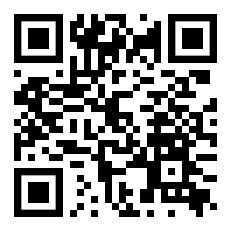The Australian dollar remains in positive territory against other currencies. The Bank of Canada survey disappointed investors
The Bank of Canada’s Business Outlook Survey emphasized continued pessimism among Canadian companies, attributing it to weak sales expectations and high equipment costs holding back investment. In addition, Canada’s unemployment rate rose in June to its highest level since January 2022, accompanied by an unexpected 1.4k jobs decline versus an expected 22.5k increase, adding to the Bank of Canada’s concerns about the impact of higher interest rates on the labor market.
Bitcoin (BTC/USD) surged to $65,000 on Tuesday, hitting its highest level in nearly a month, as US presidential candidate Donald Trump picked Sen. J.D. Vance as his running mate. The Ohio Republican said he owns more than $100,000 worth of bitcoin and has been critical of regulatory actions taken by the US Securities and Exchange Commission (ІSEC) against the crypto industry. Bitcoin has risen more than 10% since Friday, helped largely by the prospect of a second Trump presidency.
WTI crude oil prices fell to $81.5 a barrel on Tuesday, declining for the third consecutive session. Demand uncertainty in top consumer China and a rising dollar pressured oil prices. Data released Monday showed China’s oil imports fell month-on-month and year-on-year to 46.45 million tons in June amid weak domestic demand.
Asian markets were predominantly up yesterday. Japan’s Nikkei 225 (JP225) was not trading yesterday, China’s FTSE China A50 (CHA50) added 0.36%, Hong Kong’s Hang Seng (HK50) was down 1.52% and Australia’s ASX 200 (AU200) was positive 0.73%.
Hong Kong stocks fell by 1.3% in Tuesday morning trading, declining for a second day and moving away from their highest level in 3 weeks amid a retreat in all sectors. Disappointingly, Q2 Chinese GDP data continued to weigh on sentiment. Meanwhile, Goldman Sachs cut China’s 2024 GDP forecast to 4.9% from 5%, and JPMorgan cut its forecast to 4.7% from 5.2%. Investors’ attention turns to the Third Plenum, a high-level leadership conference scheduled for July 15-18, where they will await policy decisions. However, the focus is expected to be long-term economic and social issues.
The Australian dollar will remain positive against other currencies as the Reserve Bank of Australia (RBA) is expected to ease policy much later than other major central banks. Due to ongoing domestic inflationary pressures, markets are also looking at the possibility of another rate hike by the RBA this year. Investors are now awaiting Australian employment data later this week to gauge the state of the labor market.
The New Zealand dollar fell to $0.605, at its lowest level in two weeks, as investors await second-quarter inflation data that could influence the Reserve Bank of New Zealand’s (RBNZ) policy trajectory. Economists expect New Zealand’s consumer inflation to slow to 3.5 percent in the second quarter, the lowest rate on record.
S&P 500 (US500) 5,631.22 +15.87 (+0.28%)
Dow Jones (US30) 40,211.72 +210.82 (+0.53%)
DAX (DE40) 18,590.89 −157.29 (−0.84%)
FTSE 100 (UK100) 8,182.96 −69.95 (−0.85%)
USD Index 104.26 +0.17 (+0.16%)
News feed for: 2024.07.16
- German ZEW Economic Sentiment (m/m) at 12:00 (GMT+3);
- Eurozone ZEW Economic Sentiment (m/m) at 12:00 (GMT+3);
- Eurozone Trade Balance (m/m) at 12:00 (GMT+3);
- US Retail Sales (m/m) at 15:30 (GMT+3);
- Canada Consumer Price Index (m/m) at 15:30 (GMT+3).
This article reflects a personal opinion and should not be interpreted as an investment advice, and/or offer, and/or a persistent request for carrying out financial transactions, and/or a guarantee, and/or a forecast of future events.
